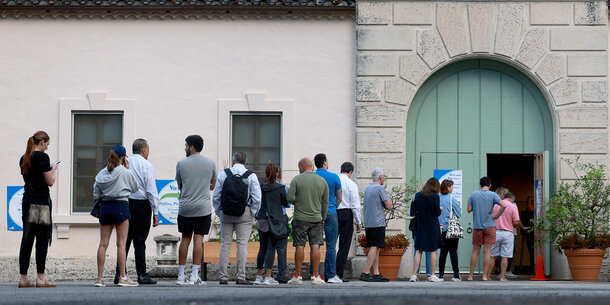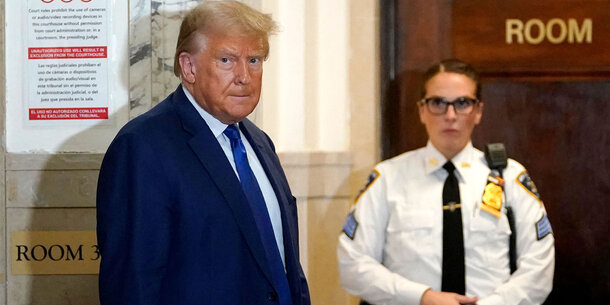From the pandemic, to national protests over police brutality and systemic racism, to widespread efforts to suppress the vote, to uncertainty over the election, this year was unlike any other. Still, voters across the country showed up and showed out in November — voting at the highest level since 1900.
Amid this historic turnout, Californians voted on 12 ballot initiatives this year, and the one that got more support than any other was Prop 17, which restored the right to vote to people on parole. The initiative amended the state constitution, immediately benefitting as many as 50,000 citizens and ridding the state of a Jim Crow-era policy aimed squarely at Black people.
The initiative’s approval — as put by Taina Vargas-Edmond, executive chair of the “Yes” on Prop 17 campaign and co-founder and executive director of Initiate Justice — was a victory for democracy and justice. The result also sets the stage for other states that have been at a standstill on this issue, like New York and Washington State, to follow suit in 2021.
Prior to Prop 17, California’s constitution barred people with felony convictions from voting while they were in prison or on parole. As a result, as many as 50,000 people on parole — a disproportionate number of whom were Black and brown because of systemic racism in the criminal legal system — could not vote.
California was also one of a very small number of states that excluded some people on community supervision from voting but allowed others to vote. This distinction caused confusion for not only election officials, but also countless eligible voters, further depressing turnout in communities of color.
But Prop 17 ’s approval changed all that, amending California’s constitution so that anyone who is not currently in prison for a felony conviction can vote. Nearly 60 percent of Californians voted in favor of the initative, which also got more “Yes” votes than the 11 other initiatives on the ballot.
To better understand the racial implications of Prop 17’s approval, we obtained data from California’s Department of Corrections and Rehabilitation. Almost 43 percent of the people whose voting rights were restored by the initiative are Latino and almost 26 percent are Black. (According to Census data, Latino and Black people comprise 39 percent and 7 percent of California’s overall population, respectively).
Over the years, advocates in California have worked tirelessly to expand the franchise for their fellow citizens with convictions — both in the courts and the legislature. In 2016, voting rights restoration in the state was expanded to the constitutional limit as a result of a law narrowly defining parole so that Californians on other forms of community supervision could vote.
The following year, Rahsaan Thomas, an incarcerated organizer with Initiate Justice, proposed that the group try to get an initiative on the 2018 ballot to restore voting rights to people in prison and on parole. While that effort fell short of the signature requirement, it led to the introduction of ACA 6, the legislative vehicle that put Prop 17 on the November ballot. And thanks to the leadership of Californians who have now regained their right to vote, ACA 6 passed both chambers of the state legislature with bipartisan support.
For the next five months, the “Yes” on Prop 17 campaign worked to build a broad base of support that ultimately resulted in the initiative’s resounding approval on November 3. In all, over 400 prominent individuals and organizations endorsed Prop 17, including state and national elected officials, businesses, civil rights groups, conservative groups, faith groups, labor unions, law enforcement associations, student groups, as well celebrities and activists.
Fortunately, Prop 17 wasn’t the only win this year for the growing movement to restore voting rights to people previously convicted of crimes.
In Iowa, the state’s Republican governor issued an executive order restoring voting rights to tens of thousands of Iowans previously barred from voting for life, bringing an end to the state’s policy of blanket disenfranchisement. And Washington, DC passed a law allowing residents in prison to vote, joining Maine and Vermont in never taking the right to vote away because of a conviction. Over the past two years, seven other states also changed their policies by executive order, legislation, or constitutional amendment to expand access to the ballot box for millions of Americans with past convictions.
But there’s still plenty of work to do. Across the country, there are over 5 million people barred from participating in our democracy just because they have a criminal conviction. And the majority of those disenfranchised are Black and brown. Next year, however, there is plenty of opportunity for change in Connecticut, Iowa, Kentucky, New Mexico, New York, and Washington State, where proposals to restore voting rights are expected to be introduced in the legislature.
In the meantime, congratulations to Yes on Prop 17’s fellows — Jose, Veronica, Niki, Ms. Betty, and John — who served as an inspiration throughout the course of the campaign and are all now eligible to vote.



